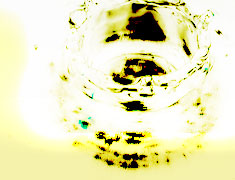Sino-Japanese War wine production factories
Kuanghsu Year 21 (1895), the Qing Dynasty lost the Sino-Japanese War and signed the Treaty of Shimonoseki, turning over Taiwan to Japan. In Meiji Year 29 (1896), Japan abolished the Puli city branch office; it established Puli affairs bureau and police bureau for the sake of rule. At the same time, when it introduced Japanese sake using large bottles and trademarks, and the Japanese people saw that Taiwan was abundant in agricultural resources, with good quality water to brew various types of alcohol. From 1900 (Qing Kuanghsu Year 27), Japan began to use local people and resources to establish wine-manufacturing companies and factories to produce sake, fruit wine, rice wine, shochu, and other hard liquor to be enjoyed by Japanese people. Thus, at the time, there were many wine shops, stores, and shops for buying and selling wine. Also, since Taiwanese people also enjoyed drinking wines made from grain, working in the wine-related business was quite lucrative. Thus, the Japanese government began collecting wine taxes in 1905. A few years earlier in 1901, Japan established the Taiwan Viceroy Monopoly Office, which slowly planned to buy the wineries in Taiwan to bring them under control for convenient management.
Street leader Shi Yunchai of an important Puli family [at the time, the Chinese medicine doctor wanted to cure opium addicts, and established the “Huaishantang” in his home, also worshipping the “Sanenchu” so that patients can quit opium with the power of their spirits; many people followed suit] provided some land, and the family of the richest man in the area, Hsu Chingho, provided the rice for brewing wine. This was the first use for the natural and fragrant Puli water to make rice wine for civil use.
|




